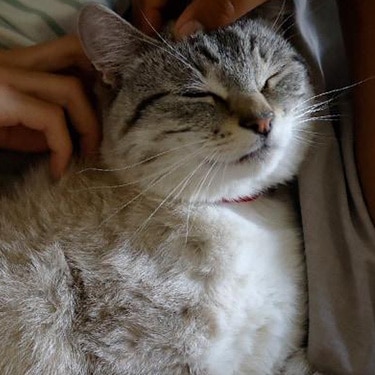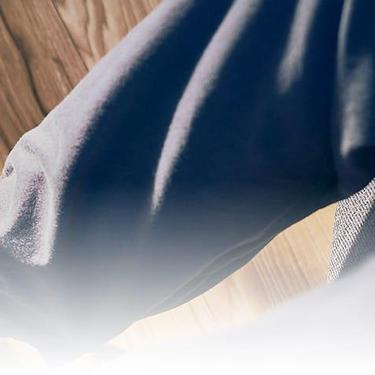
-
Find the right food for your petTake this quiz to see which food may be the best for your furry friend.Find the right food for your petTake this quiz to see which food may be the best for your furry friend.Featured products
 Small & Mini Mature Adult 7+ Dog Food
Small & Mini Mature Adult 7+ Dog FoodHill's Science Plan Small & Mini Breed Mature Adult Dog Food with Chicken is a complete pet food, specially formulated with ActivBiome+ Multi-Benefit Technology.
Tailored nutrition to support graceful ageing in small dogs. Specially made with a synergistic blend of nutrients for energy & vigor.Shop Now Perfect Digestion Small & Mini Adult Dog Food
Perfect Digestion Small & Mini Adult Dog FoodHill's Science Plan Perfect Digestion Small & Mini Breed Adult Dog Food with Chicken & Brown Rice supports ultimate digestive well-being & a healthy microbiome.
Shop Now Perfect Digestion Large Breed Puppy Food
Perfect Digestion Large Breed Puppy FoodPrecisely balanced nutrition with Hill's ActivBiome+ prebiotic blend actively contributes to supporting digestive health and overall well-being to help your pet feel their best
Shop NowFeatured products Hypoallergenic Dry Cat Food
Hypoallergenic Dry Cat FoodHILL'S SCIENCE PLAN Hypoallergenic Adult cat food with egg & insect protein is a complete pet food for adult cat 1–6 years old. It's formulated for cats with delicate skin and stomach, with limited high quality novel protein sources & no grain.
Shop Now Kitten Food
Kitten FoodHill's Science Plan Kitten Wet Cat Food Premium Chunks in Sauce with Chicken is a complete pet food for kittens and for pregnant or nursing cats
Shop Now Hairball & Perfect Coat Adult Cat Food
Hairball & Perfect Coat Adult Cat FoodHill's Science Plan HAIRBALL & PERFECT COAT Adult cat food with Chicken is specially formulated to effectively help avoid hairball formation in adult cats while promoting a beautiful coat. Thanks to its mix of essential Omega-6 fatty acids, this food benefits the cat's skin and fur keeping them healthy and shiny. Our Advanced Fibre Technology helps reduce hairballs by naturally promoting their passage through the gut. This food is formulated with high-quality protein for a perfectly balanced, great-tasting recipe.
Shop Now -
Dog
- Dog Tips & Articles
-
Health Category
- Weight
- Food & Environmental Sensitivities
- Urinary
- Digestive
- Joint
- Kidney
-
Life Stage
- Puppy Nutrition
- Adult Nutrition
- Senior Nutrition
Cat- Cat Tips & Articles
-
Health Category
- Weight
- Skin & Food Sensitivities
- Urinary
- Digestive
- Kidney
-
Life Stage
- Kitten Nutrition
- Adult Nutrition
Featured articles Pet Food Storage Tips
Pet Food Storage TipsWhere you store your cat and dog food can make a big difference in the quality and freshness once it is opened. Here are some common questions and recommendations for optimal storage for all of Hill’s dry and canned cat and dog food.
Read More Understanding Your Pet's Microbiome
Understanding Your Pet's MicrobiomeLearn what a pet's microbiome is, how it contributes to your pet's gut & overall health, and why nutrition is important in maintaining healthy microbiomes.
Read More The Right Diet For Your Pet
The Right Diet For Your PetLearn what to look for in healthy pet food & nutrition, including ingredients, quality of the manufacturer, your pet's age, and any special needs they have
Read More -


Find the vet your new kitten deserves
You're bound to want the very best for your new kitten, and one of the most important things you can do is find an excellent veterinary practice. After all, you're going to be relying on them for years to come. A recommendation from family or friends is one way to find a good vet but otherwise just trust your instincts. Do the staff seem friendly, helpful and knowledgeable? What are the surgery hours and what provision is there if your kitten happens to be unwell outside of those hours? Many vets now offer much more than just medical and surgical care. For example, many now sell everything from pet food to litter trays. You may find this useful.
Vets are not just for sick pets
Gone are the days when you only took a pet to the vet if it was sick. Regular health checks in the first few months of your kitten's life will mean any problems can be spotted before they have a chance to escalate. Most clinics will also offer advice on everything from collars to training. An added bonus that comes from taking a fit and healthy kitten to the vet, is she will get used to going there. Cats are clever and will soon learn to dread visits to the vet if the only time they go there is for 'nasty' things like injections!


Tasty Tips
Getting ready
It's natural to be nervous before your kitten's first visit to the vet, but don't worry, she'll be in safe hands. A little preparation will help make it a positive and reassuring experience.
When you make your first appointment, you should ask the surgery how they would like you to get ready for your visit. It will depend on your vet. It would certainly be a good idea to bring along any medical records you might have for the kitten. And if you have health insurance, or identification chip details for your pet, bring along these documents too.
Prepare a cosy carrier for your kitten; you can get cat carriers at pet shops and even at some vet surgeries. Put in a comfy blanket, and you could even use some special pheromone spray in the carrier to help your kitten feel relaxed and calm.
Be ready to answer questions on your kitten's life so far. What type of food is your kitten eating? Is your kitten sleepy and slow, or is she active and playful? Has she ever had any vaccinations, worming, flea control or treatments, perhaps with her previous owner? Remember, this is also your chance to ask the vet questions. Is there anything that you need clearing up, that you're not sure about? Your vet will be happy to reassure you, and give you advice.
What to expect
Try to arrive a bit before the appointment time. There may be some paperwork for you to fill out. Then a member of staff will take you and your kitten into an examination room, where they will probably first measure your kitten's temperature and weigh her.
Next, your vet will give your kitten a physical examination. Most vets will make friends with your kitten and help to relax her before they start their check-up, by stroking and speaking softly to her. Your vet will then check her body thoroughly, looking for any signs of illness or abnormality. He or she will probably ask some routine questions at this stage, and you can ask any questions you may have too. You might also talk about your kitten's feeding habits and needs, as research shows that the right food is vital to your kitten's healthy development. Your conversation will help the vet get to know your kitten, establishing a trusting relationship that should last your cat's lifetime. Before you leave, remember to pick up your kitten's new medical records and any food or medication that the vet may have prescribed. Now it's time to take your kitten home. Feel free to give her a treat and a cuddle before she settles down to a well-deserved catnap - it's been quite a day!
Pet Insurance
If your kitten is unwell, you're bound to feel concerned and the last thing you'll want is the additional stress of worrying about the cost of medical care. That's why many owners choose to take out pet insurance.
It's worth doing a bit of research comparing policies and prices and the internet is great for this if you have access to it.
Remember that pet insurance will not cover routine health care and that it's vital to read the 'small print' before you sign anything.


One of our staff authors prepared this article for you
Related products

Hill's Science Plan Adult Cat Food with Chicken is a complete pet food, specially formulated with ActivBiome+ Multi-Benefit Technology.
This food is specially formulated to fuel the energy needs of cats during the prime of their life.

Hill's Science Plan HAIRBALL & PERFECT COAT Adult cat food with Chicken is specially formulated to effectively help avoid hairball formation in adult cats while promoting a beautiful coat. Thanks to its mix of essential Omega-6 fatty acids, this food benefits the cat's skin and fur keeping them healthy and shiny. Our Advanced Fibre Technology helps reduce hairballs by naturally promoting their passage through the gut. This food is formulated with high-quality protein for a perfectly balanced, great-tasting recipe.

Hill's Science Plan Kitten Wet Cat Food Premium Chunks in Sauce with Chicken is a complete pet food for kittens and for pregnant or nursing cats

HILL'S SCIENCE PLAN Hypoallergenic Adult cat food with egg & insect protein is a complete pet food for adult cat 1–6 years old. It's formulated for cats with delicate skin and stomach, with limited high quality novel protein sources & no grain.
Related articles

When learning how to train your cat, you'll start with very basic first steps that both reward good behavior and discourage the bad.

Find out about how you can support your cat's digestion to boost overall health. Diet is key to a long and happy life for your cat, so discover what you can do.

Discover what you can do to spot and support a sensitive cat stomach. See what routines and food you can implement to help your cat be happy and healthy.

Discover which cat toys games your feline friend might like, and how they are great sources of exercise. Explore our library of articles to learn more.

Put your cat on a diet without them knowing
Our low calorie formula helps you control your cat's weight. It's packed with high-quality protein for building lean muscles, and made with purposeful ingredients for a flavorful, nutritious meal. Clinically proven antioxidants, Vitamin C+E, help promote a healthy immune system.
Put your cat on a diet without them knowing
Our low calorie formula helps you control your cat's weight. It's packed with high-quality protein for building lean muscles, and made with purposeful ingredients for a flavorful, nutritious meal. Clinically proven antioxidants, Vitamin C+E, help promote a healthy immune system.

